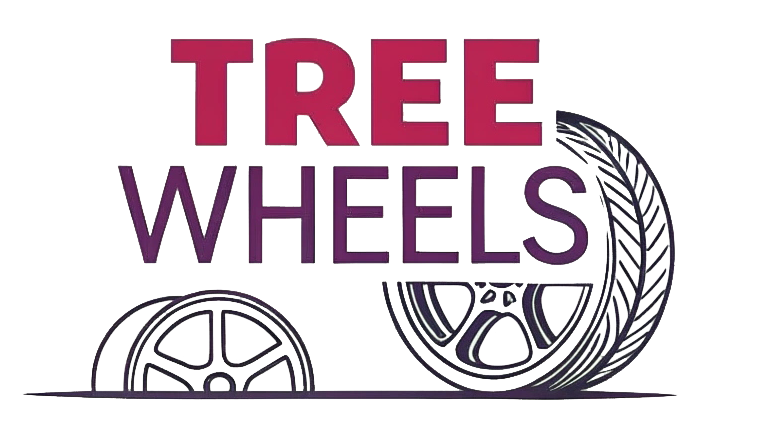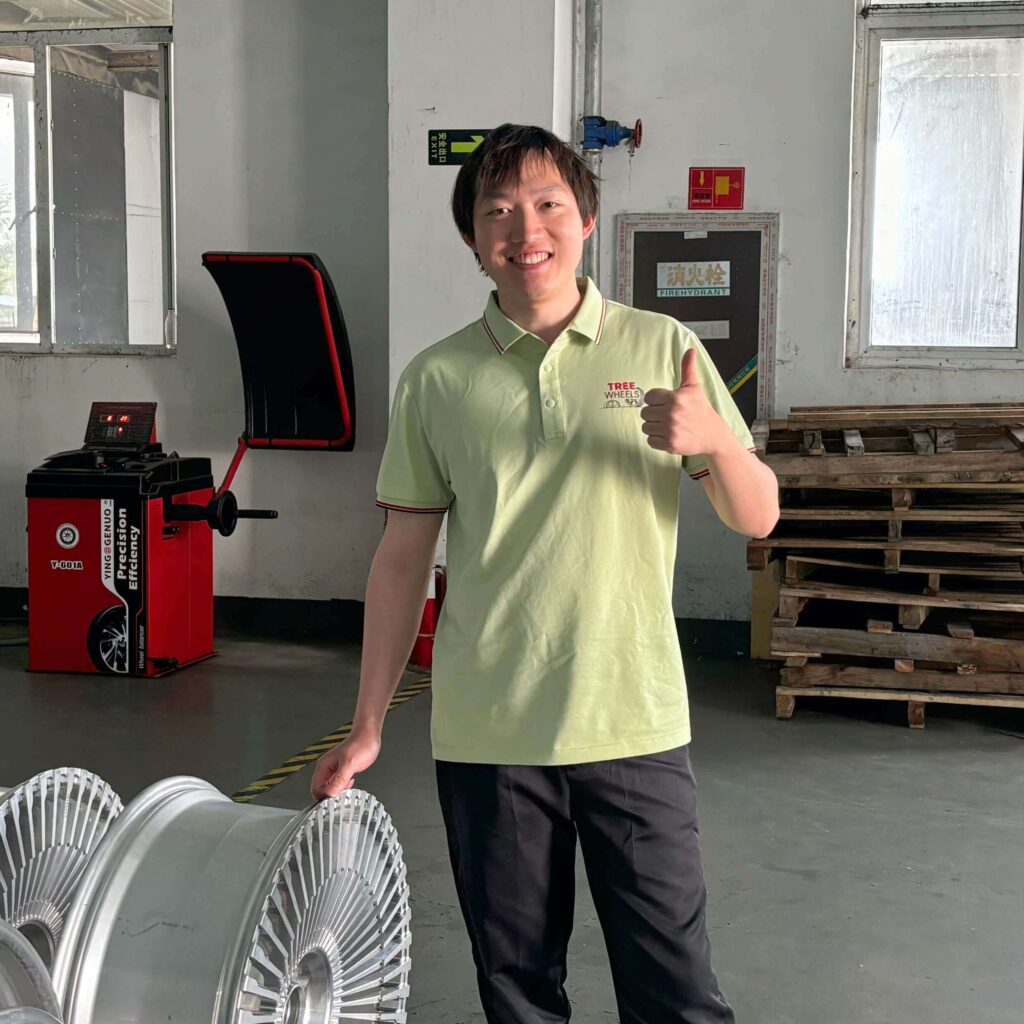The weight of wheels can make or break your vehicle's performance. Heavier wheels drag down acceleration, handling, and fuel economy, leaving drivers frustrated with lackluster performance despite engine upgrades.
Forged wheels can typically be manufactured 20-30% lighter than cast wheels of the same size due to their denser molecular structure. High-end forged wheels can reach weights as low as 7.5kg for a 19-inch wheel while maintaining necessary structural integrity and load capacity.
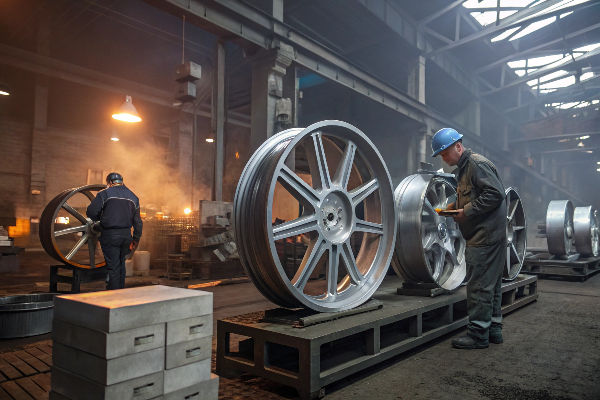
Creating truly lightweight forged wheels requires more than just removing material. It demands precise engineering and manufacturing expertise. Let's explore what makes forged wheels the lightweight champions of the wheel industry and how we at Tree Wheels push the boundaries of weight reduction while maintaining strength.
Are Forged Wheels The Lightest?
Many drivers invest thousands in engine mods but ignore wheels, unknowingly carrying extra rotational weight that cancels out performance gains and wastes fuel with every revolution.
Forged wheels are among the lightest metal wheel options available, typically 20-30% lighter than comparable cast alternatives. While carbon fiber wheels can be lighter theoretically, forged aluminum wheels offer the best balance of weight, strength, durability, and cost-effectiveness for most performance applications.
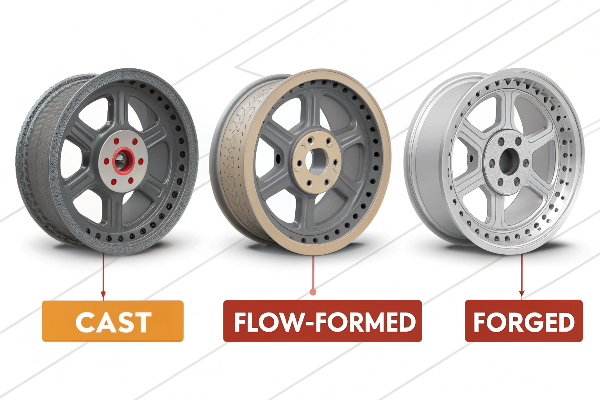
At Tree Wheels, our premium one-piece forged wheels demonstrate the remarkable weight advantages of proper forging techniques. Through our optimized spoke design and precision CNC machining processes, we've achieved weights of approximately 7.5kg for 19-inch wheels – truly industry-leading figures.
The weight advantage comes directly from the manufacturing process. During forging, enormous pressure realigns the aluminum's molecular structure, creating a denser, stronger material. This allows us to use less material overall while maintaining structural integrity. Unlike cast wheels that need thicker sections to compensate for potential air pockets or inconsistencies, forged wheels can feature thinner profiles and more aggressive weight-saving designs.
While carbon fiber wheels do exist and can be marginally lighter, they come with significant tradeoffs in cost, repairability, and durability in certain conditions. Our forged aluminum technology represents the sweet spot between extreme lightness and practical real-world performance. When customers ask for the lightest possible wheel that won't break the bank or sacrifice reliability, our forged options consistently deliver the ideal balance.
What Is The Best Material For Lightweight Wheels?
Wheel material selection often becomes overwhelming with marketing claims and technical jargon, leaving buyers confused about what truly matters for durability and performance.
The best materials for lightweight wheels are aircraft-grade aluminum alloys like 6061-T6 and 7075. 6061-T6 offers an excellent strength-to-weight ratio with superior corrosion resistance, while 7075 provides higher strength allowing for further weight reduction of approximately 5-8% in performance applications.
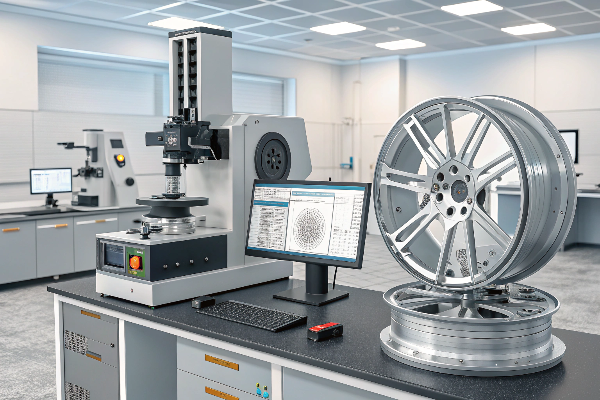
At Tree Wheels, material selection is a cornerstone of our manufacturing philosophy. We've invested extensively in research to identify the optimal aluminum alloys for different wheel applications and driving conditions.
Our material sourcing process involves rigorous quality control. Every batch of raw aluminum undergoes spectral analysis to verify exact alloy composition before entering production. This attention to detail ensures consistency across all our products. The purity and quality of our materials directly impact not only the wheel's weight but also its longevity and performance.
For most applications, we utilize 6061-T6 aluminum due to its versatility. This alloy provides the ideal balance between weight reduction potential, strength characteristics, and corrosion resistance. However, for clients pursuing maximum performance, our 7075 alloy options deliver even higher strength-to-weight ratios, allowing us to shave additional weight while maintaining load capacities.
The heat treatment process after forging is equally critical in establishing material properties. The designation "T6" refers to a specific heat treatment sequence that significantly enhances the material's strength. Our proprietary heat treatment protocols further optimize these standard processes for wheel-specific applications, resulting in materials that can withstand the unique stresses that wheels face during performance driving.
| Alloy Type | Weight Reduction | Strength | Corrosion Resistance | Best Application |
|---|---|---|---|---|
| 6061-T6 | Excellent | Very Good | Excellent | All-around performance |
| 7075 | Superior | Superior | Good | Maximum performance |
What Are The Disadvantages Of Forged Wheels?
Car enthusiasts often rush toward forged wheels for their performance benefits without understanding the practical limitations, potentially leading to disappointment when their expectations don't align with reality.
The main disadvantages of forged wheels include higher production costs (2-3x more than cast wheels), longer manufacturing times (15-35 days depending on complexity), limited design flexibility for complex patterns, potentially less deformation before cracking in extreme impacts, and more difficult repair procedures.
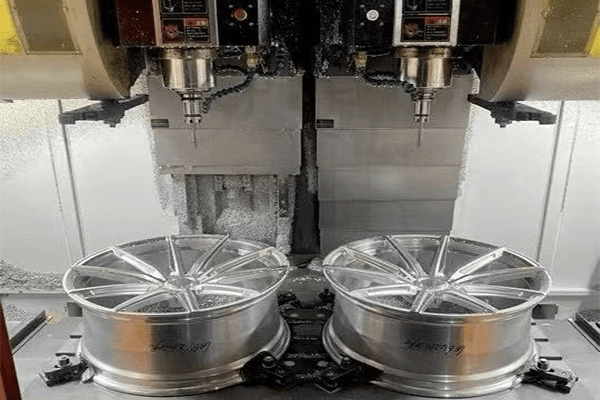
As a manufacturer committed to transparency, I believe in honestly addressing the limitations of even our premium forged wheel products. Understanding these challenges helps us continually improve our offerings and helps customers make informed decisions.
The production cost factor is significant. Our forging process requires specialized equipment and precision machining that simply costs more to operate. The raw material must be of higher quality and purity than that used in casting processes. Each wheel also undergoes extensive individual attention during production rather than being mass-produced in molds. These factors contribute to forged wheels typically costing 2-3 times more than comparable cast options.
Production time presents another consideration. Our single-piece forged wheels require 15-20 days of production time, two-piece designs need 20-25 days, and three-piece configurations take 30-35 days to complete. This extended timeline results from the multiple precise manufacturing stages required, including the initial forging, heat treatment, rough machining, final precision machining, and quality control testing.
Another limitation involves design constraints. While we can achieve remarkable designs through forging and machining, extremely intricate patterns or complex undercut geometries sometimes found in cast wheels may be difficult or impossible to reproduce in forged wheels. This is why we work closely with clients during the design phase to ensure their aesthetic vision aligns with manufacturing realities.
In terms of impact response, forged wheels exhibit different behavior than cast wheels. While stronger overall, their greater rigidity means they may have less deformation capacity before failure in extreme impact scenarios. We mitigate this through extensive finite element analysis during design and repeated real-world testing to optimize impact resistance without compromising weight advantages.
How Much Weight Can Forged Wheels Hold?
Vehicle owners often worry about lightweight wheels sacrificing load capacity, especially for trucks, SUVs, or vehicles carrying heavy equipment, potentially leading to dangerous wheel failures under stress.
A properly engineered 20-inch forged wheel can support over 1000kg (2200lbs) of static load per wheel, significantly exceeding the requirements for most passenger vehicles and light trucks. This superior load capacity comes from the denser molecular grain structure created during the forging process.
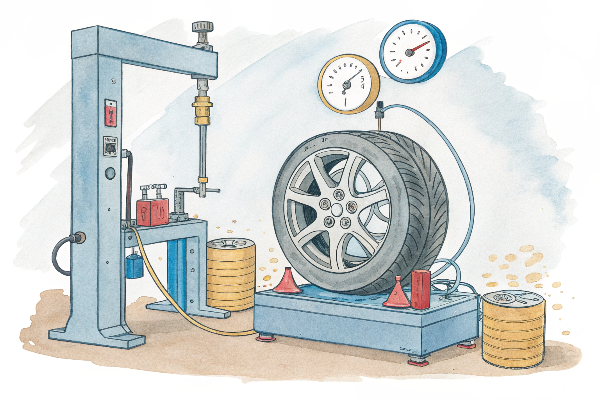
The load-bearing capacity of forged wheels represents one of their most impressive yet underappreciated qualities. Our Tree Wheels forged designs undergo rigorous testing to ensure they exceed safety standards across all intended applications.
The exceptional strength-to-weight ratio achieved through our forging process allows us to create wheels that are simultaneously lighter and stronger than cast alternatives. This seemingly contradictory outcome stems directly from the fundamental changes in metal structure that occur during forging. Under immense pressure (typically over 9,000 tons for our larger wheels), the aluminum's grain structure becomes denser and more aligned, eliminating the microscopic voids and inconsistencies found in cast wheels.
We optimize weight distribution within each wheel design using advanced computer modeling. Critical load-bearing areas maintain necessary thickness and strength, while non-essential zones can be machined for weight reduction. This targeted approach ensures maximum strength where needed without unnecessary weight elsewhere.
Our testing protocols exceed industry requirements, subjecting wheels to both static load testing and dynamic impact scenarios. A typical 20-inch Tree Wheels forged wheel can withstand over 1000kg of static load – far beyond what most passenger vehicles demand. For specialty applications like commercial vehicles or armored cars, we offer reinforced designs with even greater load capacities.
The relationship between weight reduction and load capacity represents the true engineering achievement in premium forged wheels. Through precise stress analysis and optimized material distribution, we achieve the seemingly impossible – wheels that are both lighter and stronger than conventional alternatives. This balance of characteristics is the defining advantage of modern forging technology.
| Wheel Type | Weight (19") | Load Capacity | Impact Resistance | Price Range |
|---|---|---|---|---|
| Cast | ~10kg | Good | Moderate | $ |
| Flow-Formed | ~9kg | Better | Better | $$ |
| Forged | ~7.5kg | Excellent | Excellent | $$$ |
Conclusion
Forged wheels represent the pinnacle of lightweight wheel technology, achieving up to 30% weight reduction while maintaining superior strength. For the ultimate combination of performance, durability, and aesthetics, Tree Wheels delivers customized forged solutions with sincerity above all.
